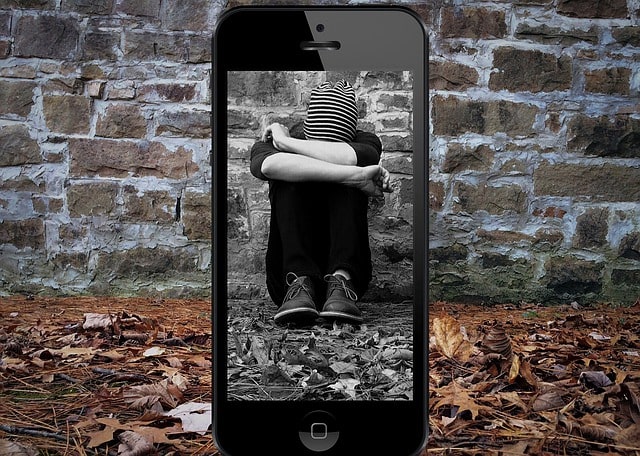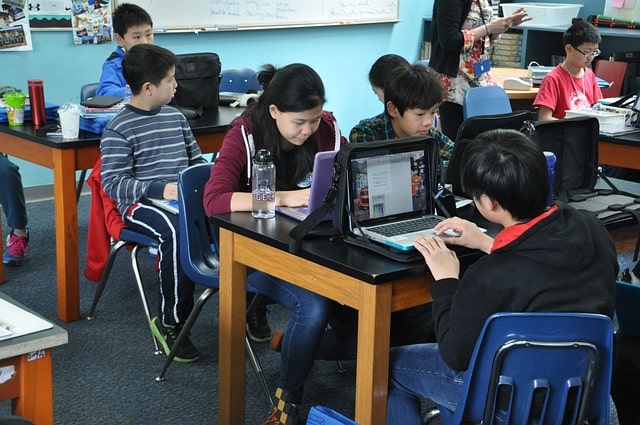What is cyber bullying? How to prevent cyber bullying
It's not always easy to know how and when to be a good parent. Compared to the parents of the old days, most children today use technology differently from us. They play games online and send text messages on their phones from an early age, and most teenagers have devices that keep them connected to the Internet.
Many people are logged into Facebook or Tumblr and chat or text all day. Even sending emails or leaving a voicemail is very rare. Their knowledge of the digital world can amaze parents.
But children's participation in the cyber world, just like in their real world, can help parents protect them from dangers. As awareness of cyber bullying has grown, parents have learned more about how to deal with it. Here are some suggestions for what to do if this type of modern bullying has become a part of your child's life.
What is cyber bullying ?
Cyberbullying is the use of technology to harass, intimidate, embarrass, or target others. By definition, it occurs in young people. When an adult is involved, it may meet the definition of harassment or cyberattack, a crime that can have legal and related consequences for criminal prosecution.
How to detect cyber bullying ?

At times, threats online can be easily recognized - for example, your child shows you a text, tweet, or response to a Facebook status update that is harsh, evil, or cruel.
Other less obvious behaviors, such as impersonating a victim online or posting personal information, photos or videos designed to hurt or embarrass others. Some kids report that a fake account , websites or individuals online that have been created for the sole purpose of harassment and bullying.
Cyberbullying can also happen by accident. The fake nature of text, IM and email messages makes it difficult to detect the sender's tone - one person's prank can be a heavy insult to another.
However, a recurring pattern of emails, texts, and online posts is rarely accidental, because many kids are reluctant to report bullying, even to their parents, it is impossible to know how many. affected people. But recent studies of online threat rates have found that about 1 in 4 teenagers are victims of online threats, and about 1 in 6 admit to threatening someone online. .
In some studies, more than half of teenagers surveyed said they had experienced abuse through social and digital media .
The effects of cyber bullying

No longer limited to school grounds or street corners, modern bullying can happen at home as well as at school - essentially 24 hours a day. The chosen kids may feel like they're exploding continuously and with no way out. As long as children have access to a phone, computer or other device (including tablets), they are at risk. and bullies are at high risk such as anxiety, depression and other stress related disorders.
In some of the more widely publicized cases, some children commit suicide. Experts say bullied children - and the bullies themselves - are at greater risk of suicide and attempting to commit suicide.
Penalties for cybercrime can include suspension from school or expulsion from sports teams. Certain types of online threats can be considered criminals.
Signs of cyber bullying
Many online threatened children and teenagers do not want to share with their teachers or parents, often because they feel ashamed of social stigma or fear that their computing privileges will be taken. go.

Signs of online threat vary, but can include:
- Emotionally upset during or after using the Internet or the phone
- Very secretive or protective of one's digital life
- Withdraw money from family members, friends and activities
- Avoid gathering at school or groups
- Slide the score and "act" in anger at home
- Changes in mood, behavior, sleep or appetite
- Want to stop using your computer or mobile phone
- Get nervous or restless when you receive instant text messages, texts or emails
- Avoid discussions about the operation of computers or cell phones
How to prevent cyber bullying ? Parents can help
If you find that your child is being threatened online, talk freely and be ready to help. Talk about any bullying experiences you had during childhood that could help your child feel less lonely. Let your child know that it was not his fault. Praise your child for doing the right thing by talking with you about it. Remind your child that he's not alone - a lot of people are bullied in the same way at this point. Reassure your child that you will know what to do with it.
Tell someone at school (principal, nurse, counselor, or teacher) about the situation. Many schools, school districts and after-school clubs have strategies for dealing with online threats. But before you report the problem, let your child know that you plan to do so, so you can come up with a plan that makes you both comfortable.
Encourage your child not to respond to online threats, because doing so will only cause stress and make the situation worse. But keep threatening messages, pictures, and text, as they can be used as evidence with a parent, school, bully's employer or even the police. You may want to capture, save, and print screenshots of these in the future.
How to prevent online threats
- Block a bully. Most devices have settings that allow you to block email, IM, or electronic text from specific people.
- Limited access to technology. While this is difficult to do, many bullied children are unable to resist the temptation to visit websites or phones to see if there are new messages. Keep computers in public places indoors (eg don't allow laptops in children's bedrooms) and set limits on cell phone use and games. Some systems allow you to turn off text messaging for a certain number of hours. And most websites and smartphones now have parental controls that allow parents to access their children's messages and online lives.
- Understand your child's online world. Ask "friends" or "follow" your child on social media sites, but don't abuse this privilege by commenting or posting anything on your child's profile. Check their posts and the websites your kids visit, and be aware of how they spend their time online. Talk to them about the importance of privacy and why it's a good idea to share personal information online, even with friends.
- Learn about ways to keep your kids safe online . Encourage them to password-protect themselves and never post their address or whereabouts while out and about.
Use Software to monitor, block or limit your child's online activities

- Decide how much time online is suitable for each of your kids.
- Keep track of their activities on Windows, macOS, Android and iOS.
- Make sure it's always safe for your kids. Keep them away from inappropriate content.
- Allow trusted contacts to call and text your kids, and block incoming calls without caller ID.
- Always know where your kids are when they use a mobile device with GPS
When your child is a bully
Finding out that your child is a bad person can be sad and heartbreaking. It's important to address this issue and not get lost. Talk to your child with certainty about his or her actions and explain its negative effects on others.
Jokes and teasing may seem harmless to one person, but it can hurt another. Bullying - in all its forms - is not acceptable; There can be serious (and sometimes permanent) consequences at home, at school and in the community if it continues. Remind your child that cell phone and computer use is a privilege.
If you feel your child should have a cell phone for safety reasons, make sure it is a phone that can only be used for emergencies. Put tight parental controls on all devices.To get to the heart of the problem, talking to teachers, counselors, and other school teachers can help identify situations that cause an issue. the child bullies others.
If your child has difficulty controlling anger, talk to a therapist about helping your child learn to deal with anger, hurt, disappointment, and other strong emotions in a healthy way. strong. Professional counseling can also help improve children's confidence and social skills, which in turn can reduce the risk of bullying, and don't forget to set a good example yourself - practice online routines. Good for helping your child understand the benefits and dangers of life in the digital world.
Good luck !